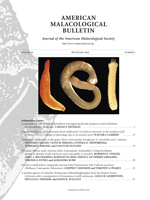Idiosepius paradoxus (Ortmann, 1881) has been previously collected only in the four months from September to December at Usujiri, in northern Japan, which is considered its northern limit. Previous reports indicate that I. paradoxus is not able to overwinter at this distribution boundary. In winter 2006–2007, seawater temperatures were higher than in previous years. To investigate whether I. paradoxus overwinters in Usujiri, we collected specimens monthly and compared their occurrence pattern with seawater temperature data. In 2007, samples were collected between April and August, months in which they had not been previously collected in Usujiri. Winter seawater temperatures in 2007 were higher than in any other year. These results suggested that I. paradoxus successfully overwintered in Usujiri. However, winter water temperatures in 2008 returned to their usual lows, and specimens were not found in April. Therefore, overwintering success appeared to be temporary, and range expansion toward higher latitudes does not appear to have yet occurred.
How to translate text using browser tools
1 January 2013
The Possibility of Overwintering by Idiosepius paradoxus (Cephalopoda: Idiosepiidae) at the Northern Limits of its Distribution
Noriyosi Sato,
Hiroyuki Munehara
ACCESS THE FULL ARTICLE





